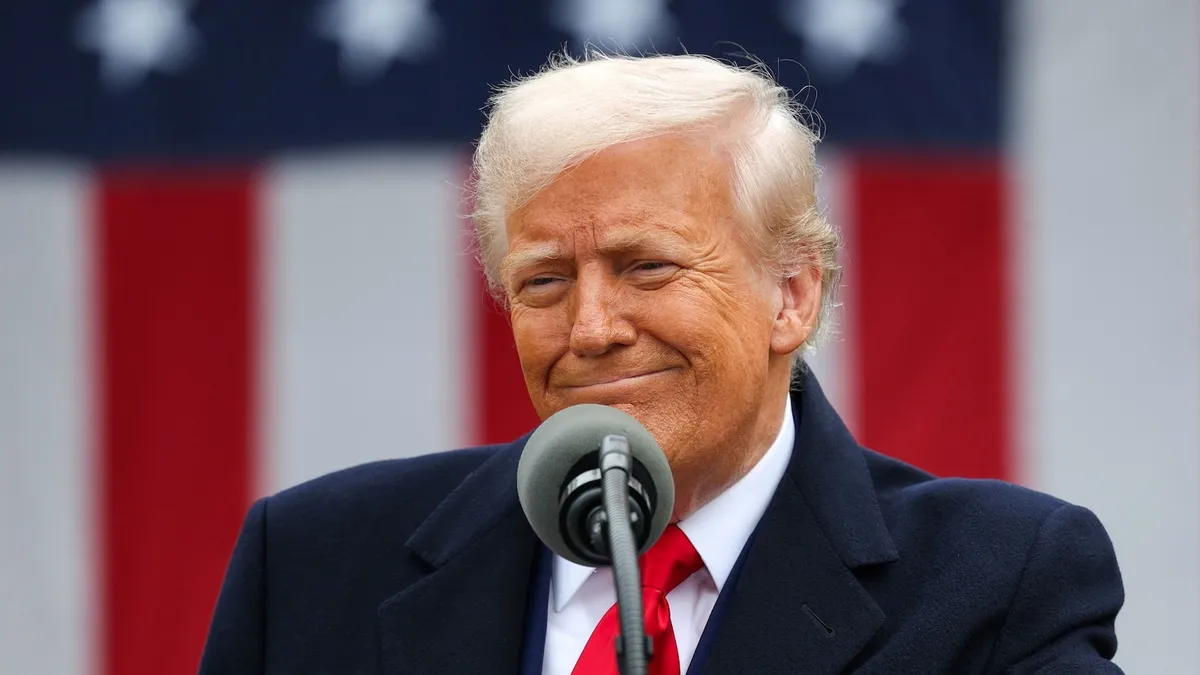
The White House is unwavering in its support of President Donald Trump's extensive tariff rollout, even as financial markets experience a significant downturn, businesses express concern, and foreign leaders threaten retaliatory measures. Following Trump's dramatic announcement in the Rose Garden, he had no public events scheduled, leaving White House Press Secretary Karoline Leavitt and Vice President JD Vance to address the ensuing fallout on morning news programs.
In his appearance on Fox & Friends, Vice President Vance acknowledged that Trump's ambitious new tariffs, which will affect nearly all U.S. trading partners, herald a significant shift for American consumers. "President Trump is taking this economy in a different direction," Vance stated. "He ran on that. He promised it. And now he's delivering." He emphasized that while there may be short-term pain, a substantial change was necessary for the economy.
Press Secretary Leavitt echoed Vance's sentiments during her segment on CNN, asserting that Trump is fulfilling his commitment to implement reciprocal tariffs. "To anyone on Wall Street this morning, I would say trust in President Trump," she urged. "This is a president who is doubling down on his proven economic formula from his first term." However, neither Vance nor Leavitt addressed the potential increase in costs that economists predict U.S. consumers will face, nor did they provide immediate solutions for Americans suffering from the impact of these tariffs.
U.S. stocks experienced a significant drop in early trading on Thursday, shortly after Trump's announcement of a minimum 10% tariff on all countries, alongside more targeted reciprocal tariffs against various nations accused of unfair trade practices. Commerce Secretary Howard Lutnick later commented on the negative business response, suggesting that critics were overlooking the factories that Trump claimed would be established in the U.S. as a result of these tariffs.
World leaders are currently deliberating their responses to Trump's unprecedented tariffs, which are scheduled to take effect on April 5 and April 9. Notably, China is facing a staggering 54% tariff rate and has urged the U.S. to revoke its unilateral measures and address trade differences through equitable dialogue. Nonetheless, the White House insists that the tariffs are non-negotiable. Leavitt emphasized, "The president made it clear yesterday, this is not a negotiation. This is a national emergency." She reiterated that countries have had decades to treat American interests fairly but have failed to do so.
During his Rose Garden speech, President Trump delivered a clear message to those affected by the tariff plan: "If you want your tariff rate to be zero, then you build your product right here in America." He reinforced the notion that there would be no tariffs for companies that manufacture products domestically.
In conclusion, as the Trump administration navigates the complexities of its tariff policy amidst market volatility, the consequences for American consumers and international relations remain a topic of heated discussion. The White House's commitment to these tariffs reflects a broader strategy aimed at reshaping U.S. trade dynamics, but the immediate impact on the economy and consumer prices will be closely monitored in the coming weeks.